Fintech companies in Nigeria are at the forefront of Africa’s fintech revolution, and many of them have turned out to become formidable players to watch out for.
Last year, fintech companies in Nigeria picked up a majority of the funding that came into the country, with 44% of the total startup funding deals. Adoption of digital financial services is also growing steadily. In 2019 for instance, US$256 billion was transferred electronically, up from US$48 billion in 2014.
As of 2020, it is estimated that there were over 200 fintech companies in Nigeria. Further, by 2022, the country’s fintech sector is expected to bring in revenues of US$543 million.
The Central Bank of Nigeria (CBN) has also made strides in this space recently, with the recent launch of the e-Naira, and conditional banking services approval for MTN Nigeria and Airtel Africa.
What’s more, two of Africa’s five fintech unicorns are based in Nigeria, and so are a third of the continent’s top digital banks. With so much going for fintech companies in Nigeria right now, here are the top 9 to keep an eye on.
Top Fintech Companies in Nigeria
1. OPay
Founding date: 2018
Founders: Zhou Yahui
Industry: Mobile money
Headquarters: Lagos, Nigeria

OPay’s mobile money service gives users the ability to pay for utilities, make P2P transfers, and save as well. The company also offers an offline banking service through which users that don’t have smartphones can still carry out transactions.
OPay hit a valuation of US$2 billion this year, with a funding round of US$400 million led by Japanese conglomerate SoftBank’s Vision Fund 2. Prior to this, the company had raised Series A and B rounds for US$50 million and US$120 million respectively, both in 2019.
It was also the only African startup to be listed in CB Insights Fintech 250 2021.
2. Paga
Founding date: 2009
Founders: Tayo Oviosu
Industry: Mobile money
Headquarters: Lagos, Nigeria
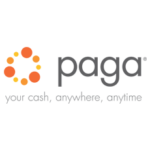
Paga is a mobile money solution that offers transfers, bill payments, top-ups and even remittance services. The company has 17 million users, and is accessible to unbanked, offline users through a mobile money agent network as well.
The company has only raised US$36.7 million in funding, but counts some big names amongst its investors, including Tim Draper (Crunchbase).
As of June this year, Paga had plans to launch an SME platform, and was also looking to expand into Ethiopia and possibly Mexico. Crypto may also be in the books, although not for Nigeria due to the CBN’s disapproval.
3. Interswitch
Founding date: 2002
Founders: Mitchell Elegbe
Industry: Paytech
Headquarters: Lagos, Nigeria
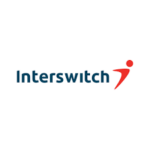
Interswitch is one of the earliest fintech companies in Nigeria, one of its two unicorns, and has been mulling an IPO for a while as well. It shot to a valuation of US$1 billion after a minority investment (reportedly valued at US$200 million) from Visa in 2019.
The company provides a broad spectrum of digital financial solutions, including transactions, collection, disbursement, and card issuance. Through partnerships, it recently launched a digital address verification service, and has been working on blockchain-based infrastructure. Interswitch also unveiled a corporate payment management platform for businesses of all sizes this year.
4. Kuda
Founding date: 2019
Founders: Babs Ogundeyi, Musty Mustapha
Industry: Digital banking
Headquarters: London, England
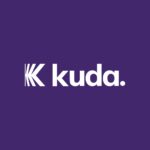
This challenger neobank, valued at US$500 million, is fully licensed by the CBN. Although Kuda is based in London, it is currently focused on the Nigerian market. It raised US$80 million across two rounds of funding this year, and has amassed a total of 1.4 million registered users.
Kuda accounts come with a free debit card, budgeting and spending controls, and transfers and savings functions as well. The bank has also killed maintenance fees, and provides users with a specific list of free transfers each month.
In February this year, Kuda crossed one million downloads for its Android app.
5. PiggyVest
Founding date: 2016
Founders: Joshua Chibueze, Nonso Eagle, Odunayo Eweniyi, Somto Ifezue
Industry: Savings and Investment
Headquarters: Lagos, Nigeria

PiggyVest provides its three million customers with savings and investment tools, but it’s not exactly a full-fledged digital bank. The company offers fixed, flexible, goal-oriented and automated savings options, as well as pre-vetted low-medium risk primary and secondary investment avenues for 6 – 12 months.
PiggyVest was started as a savings-only platform Piggybank.ng, and then added its investment solutions as well in 2019.
It’s been a while since the company raised any funding – the last round was a US$1.1 million seed round in 2018 – but PiggyVest did make an acquisition this year. It acquired competitor Savi.ng in an undisclosed round in July, and hinted towards the possibility of further acquisitions as well.
6. Paystack
Founding date: 2015
Founders: Ezra Olubi, Shola Akinlade
Industry: Paytech
Headquarters: San Francisco, California
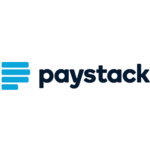
Paystack has over 60,000 registered business customers, and its investors include global names Stripe (which acquired the company in 2020), Visa and Y Combinator. Paystack’s solutions are also available in Ghana and South Africa. Paystack was based in Lagos, Nigeria before it was acquired by Stripe.
Paystack is an online and offline payments solution provider in Nigeria. It allows merchant clients to integrate with a host of payment options, including card, bank transfers, USSD, Apple Pay, Visa QR and mobile money. It is looking to launch a POS solution soon. Meanwhile, Paystack also offers payments and data APIs.
7. Carbon
Founding date: 2012
Founders: Chijioke Dozie, Ngozi Dozie
Industry: Digital banking
Headquarters: London, England

Carbon is a CBN-licensed digital bank that also provides a loan facility and investment opportunities, in addition to usual digital banking features such as debit cards. Accounts are enabled for P2P payments, as well as bill payments and mobile recharges.
Carbon currently has over two million customers according to its website. A TechCrunch report from earlier this year pegged the figure at 659,000 customers for 2020. Last year, it processed about US$241 million in transactions, a jump of 89% from 2019. Loans reached US$63 million, up 9.1% from the previous year, while investments surged 365% to reach US$32.5 million.
8. Remita
Founding date: 1992
Founders: John Obaro
Industry: Payments
Headquarters: Lagos, Nigeria

Remita, another one of the oldest fintech companies in Nigeria, provides a range of customer, business and developer-focused payments solutions. This essentially makes it a one-stop-shop for payments in Africa for consumers, businesses, and even the government. Remita is also the default payment gateway chosen by the Nigerian government for its Treasury Single Account (a unified framework for government bank accounts).
Remita was launched in 2005. Remita’s solutions range from utilities, taxes, salaries, invoices and more. It also provides APIs, SDKs and plugins for developers to integrate with Remita’s payment solutions.
9. FairMoney
Founding date: 2017
Founders: Laurin Hainy, Matthieu Gendreau, Nicolas Berthozat
Industry: Digital banking
Headquarters: Paris, France

FairMoney is a digital bank focused on lending. The company provides instant loans of up to NAR 1 million, as well as a bank account and a debit card. Tenures span 61 days to 18 months, chargeable at a monthly interest of as less as 2.5%, to as much as 30%.
According to the company, FairMoney processes over 10,000 loans every day, with one loan disbursed every eight seconds. It holds a micro-finance bank license from the CBN, and had last raised a US$42 million Series B in July this year.
The company, which also has a presence in India, disbursed loans to the tune of US$93 million last year, with plans of tripling this in 2021.



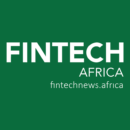
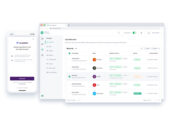
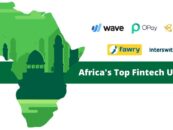

3 Comments so far
Jump into a conversation